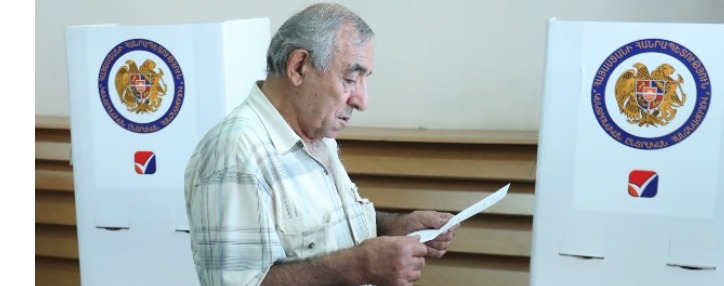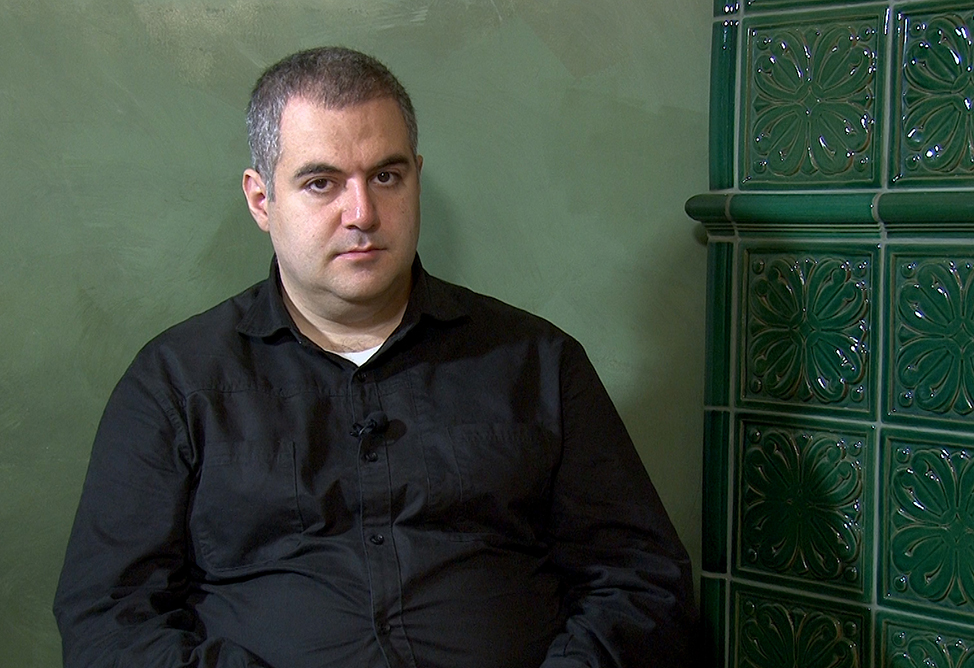EU and UNDP project supporting electoral processes in Armenia already launched
15.11.2018,
13:41
The Armenian government, the European Union, the United Kingdom and Sweden intend to invest USD0.7 million, EUR1.5 million, EUR0.7 million, GBP 0.5 million SEK 1.5 million respectively in the implementation of a project of the UNDP which supports electoral processes in Armenia.

YEREVAN, November 15. /ARKA/. The Armenian government, the European Union, the United Kingdom and Sweden intend to invest USD0.7 million, EUR1.5 million, EUR0.7 million, GBP 0.5 million SEK 1.5 million respectively in the implementation of a project of the UNDP which supports electoral processes in Armenia.
On Wednesday, Acting Armenian First Vice Premier Ararat Mirzoyan, the European Union Delegation to Armenia Piotr Switalski, German Ambassador to Armenia Matthias Kistler, Ambassador of the United Kingdom and Northern Ireland Judith Farnworth, Chargé d'Affaires at Swedish Embassy in Armenia Martin Fredriksson and UN Resident Coordinator in Armenia and Resident Representative of the United Nations Development Programme Shombi Sharp signed Wednesday a memorandum on the launch of the program.
“Armenia has officially asked the European Union to assist in the organization of the electoral process,” Ararat Mirzoyan said. “Consent has been received from the British, German and Swedish governments as well as from the European Union.”
The program is launched to contribute to the efforts to make elections in Armenia transparent, reliable, free and just.
“I am convinced that all these efforts are prompted not only by technical and labor obligations, but also by a frank commitment to make elections in Armenia democratic,” Mirzoyan said. “We have also long-term plans for development of electoral processes in Armenia in the future. If we obtain a majority in the parliament as a result of these elections, then the next elections will be conducted with a new electoral code.”
Piotr Switalski, on his side, said that the European Union has taken part in improvement of electoral processes in the past and that this support will be consistent.
At the previous elections, he said, the European Union’s share in the financing of the electoral system improvement was 90%, and this time the EU intends to provide a 100-percent financing to electoral reforms.
Switalski urged Armenian voters not to sell their votes and not to take election bribes, but instead, to inform appropriate agencies in the event of such offers.
He said these elections in Armenia should be the best elections not only in its history, but also in other countries’ histories.
Matthias Kistler, on his side, said that Germany’s financial support will be used for deployment of identification equipment and cameras as well as for airing live polling and vote counting processes on 1,500 of the country’s 2,000 polling stations.
He said that his country attaches great importance to this program, and pointed out how quick Germany’s reaction to the Armenian government’s address was.
Kistler said that the early parliamentary elections is just beginning, not completion of a new stage of Armenia’s development.
British Ambassador Judith Farnworth said that the United Kingdom supports Armenia’s government and consider Armenia as a stable and democratic partner.
Shombi Sharp, in his turn, expressed hope that the program will help in putting the ideas in the reality.
He also pointed out the necessity of enhancement of voters’ awareness of participation in elections and stressed that the results depend on voters themselves. -0---
On Wednesday, Acting Armenian First Vice Premier Ararat Mirzoyan, the European Union Delegation to Armenia Piotr Switalski, German Ambassador to Armenia Matthias Kistler, Ambassador of the United Kingdom and Northern Ireland Judith Farnworth, Chargé d'Affaires at Swedish Embassy in Armenia Martin Fredriksson and UN Resident Coordinator in Armenia and Resident Representative of the United Nations Development Programme Shombi Sharp signed Wednesday a memorandum on the launch of the program.
“Armenia has officially asked the European Union to assist in the organization of the electoral process,” Ararat Mirzoyan said. “Consent has been received from the British, German and Swedish governments as well as from the European Union.”
The program is launched to contribute to the efforts to make elections in Armenia transparent, reliable, free and just.
“I am convinced that all these efforts are prompted not only by technical and labor obligations, but also by a frank commitment to make elections in Armenia democratic,” Mirzoyan said. “We have also long-term plans for development of electoral processes in Armenia in the future. If we obtain a majority in the parliament as a result of these elections, then the next elections will be conducted with a new electoral code.”
Piotr Switalski, on his side, said that the European Union has taken part in improvement of electoral processes in the past and that this support will be consistent.
At the previous elections, he said, the European Union’s share in the financing of the electoral system improvement was 90%, and this time the EU intends to provide a 100-percent financing to electoral reforms.
Switalski urged Armenian voters not to sell their votes and not to take election bribes, but instead, to inform appropriate agencies in the event of such offers.
He said these elections in Armenia should be the best elections not only in its history, but also in other countries’ histories.
Matthias Kistler, on his side, said that Germany’s financial support will be used for deployment of identification equipment and cameras as well as for airing live polling and vote counting processes on 1,500 of the country’s 2,000 polling stations.
He said that his country attaches great importance to this program, and pointed out how quick Germany’s reaction to the Armenian government’s address was.
Kistler said that the early parliamentary elections is just beginning, not completion of a new stage of Armenia’s development.
British Ambassador Judith Farnworth said that the United Kingdom supports Armenia’s government and consider Armenia as a stable and democratic partner.
Shombi Sharp, in his turn, expressed hope that the program will help in putting the ideas in the reality.
He also pointed out the necessity of enhancement of voters’ awareness of participation in elections and stressed that the results depend on voters themselves. -0---



